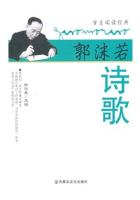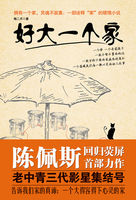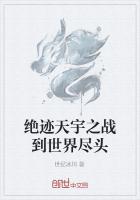Six years later, George Stephenson, a Scotchman, who had been building locomotives for the purpose of hauling coal from the mine-pit to smelting ovens and cotton factories, built his famous "travelling engine" which reduced the price of coal by almost seventy per cent and which made it possible to establish the first regular passenger service between Manchester and Liverpool, when people were whisked from city to city at the unheard-of speed of fifteen miles per hour. A dozen years later, this speed had been increased to twenty miles per hour.
At the present time, any well-behaved flivver (the direct descendant of the puny little motor-driven machines of Daimler and Levassor of the eighties of the last century) can do better than these early "Puffing Billies."
But while these practically-minded engineers were improving upon their rattling "heat engines," a group of "pure" scientists (men who devote fourteen hours of each day to the study of those "theoretical" scientific phenomena without which no mechanical progress would be possible) were following a new scent which promised to lead them into the most secret and hidden domains of Nature.
Two thousand years ago, a number of Greek and Roman philosophers (notably Thales of Miletus and Pliny who was killed while trying to study the eruption of Vesuvius of the year 79 when Pompeii and Herculaneum were buried beneath the ashes) had noticed the strange antics of bits of straw and of feather which were held near a piece of amber which was being rubbed with a bit of wool. The schoolmen of the Middle Ages had not been interested in this mysterious "electric" power.
But immediately after the Renaissance, William Gilbert, the private physician of Queen Elizabeth, wrote his famous treatise on the character and behaviour of Magnets. During the Thirty Years War Otto von Guericke, the burgomaster of Magdeburg and the inventor of the air-pump, constructed the first electrical machine. During the next century a large number of scientists devoted themselves to the study of electricity.
Not less than three professors invented the famous Leyden Jar in the year 1795. At the same time, Benjamin Franklin, the most universal genius of America next to Benjamin Thomson (who after his flight from New Hampshire on account of his pro-British sympathies became known as Count Rumford) was devoting his attention to this subject. He discovered that lightning and the electric spark were manifestations of the same electric power and continued his electric studies until the end of his busy and useful life. Then came Volta with his famous "electric pile" and Galvani and Day and the Danish professor Hans Christian Oersted and Ampere and Arago and Faraday, all of them diligent searchers after the true nature of the electric forces.
They freely gave their discoveries to the world and Samuel Morse (who like Fulton began his career as an artist) thought that he could use this new electric current to transmit messages from one city to another. He intended to use copper wire and a little machine which he had invented. People laughed at him. Morse therefore was obliged to finance his own experiments and soon he had spent all his money and then he was very poor and people laughed even louder. He then asked Congress to help him and a special Committee on Commerce promised him their support. But the members of Congress were not at all interested and Morse had to wait twelve years before he was given a small congressional appropriation.
He then built a "telegraph" between Baltimore and Washington. In the year 1887 he had shown his first successful "telegraph" in one of the lecture halls of New York University. Finally, on the 24th of May of the year 1844 the first long-distance message was sent from Washington to Baltimore and to-day the whole world is covered with telegraph wires and we can send news from Europe to Asia in a few seconds. Twenty-three years later Alexander Graham Bell used the electric current for his telephone. And half a century afterwards Marconi improved upon these ideas by inventing a system of sending messages which did away entirely with the old- fashioned wires.
While Morse, the New Englander, was working on his "telegraph," Michael Faraday, the Yorkshire-man, had constructed the first "dynamo." This tiny little machine was completed in the year 1881 when Europe was still trembling as a result of the great July revolutions which had so severely upset the plans of the Congress of Vienna. The first dynamo grew and grew and grew and to-day it provides us with heat and with light (you know the little incandescent bulbs which Edison, building upon French and English experiments of the forties and fifties, first made in 1878) and with power for all sorts of machines. If I am not mistaken the electric-engine will soon entirely drive out the "heat engine" just as in the olden days the more highly-organised prehistoric animals drove out their less efficient neighbours.
Personally (but I know nothing about machinery) this will make me very happy. For the electric engine which can be run by waterpower is a clean and companionable servant of mankind but the "heat-engine," the marvel of the eighteenth century, is a noisy and dirty creature for ever filling the world with ridiculous smoke-stacks and with dust and soot and asking that it be fed with coal which has to be dug out of mines at great inconvenience and risk to thousands of people.
And if I were a novelist and not a historian, who must stick to facts and may not use his imagination, I would describe the happy day when the last steam locomotive shall be taken to the Museum of Natural History to be placed next to the skeleton of the Dynosaur and the Pteredactyl and the other extinct creatures of a by-gone age.















